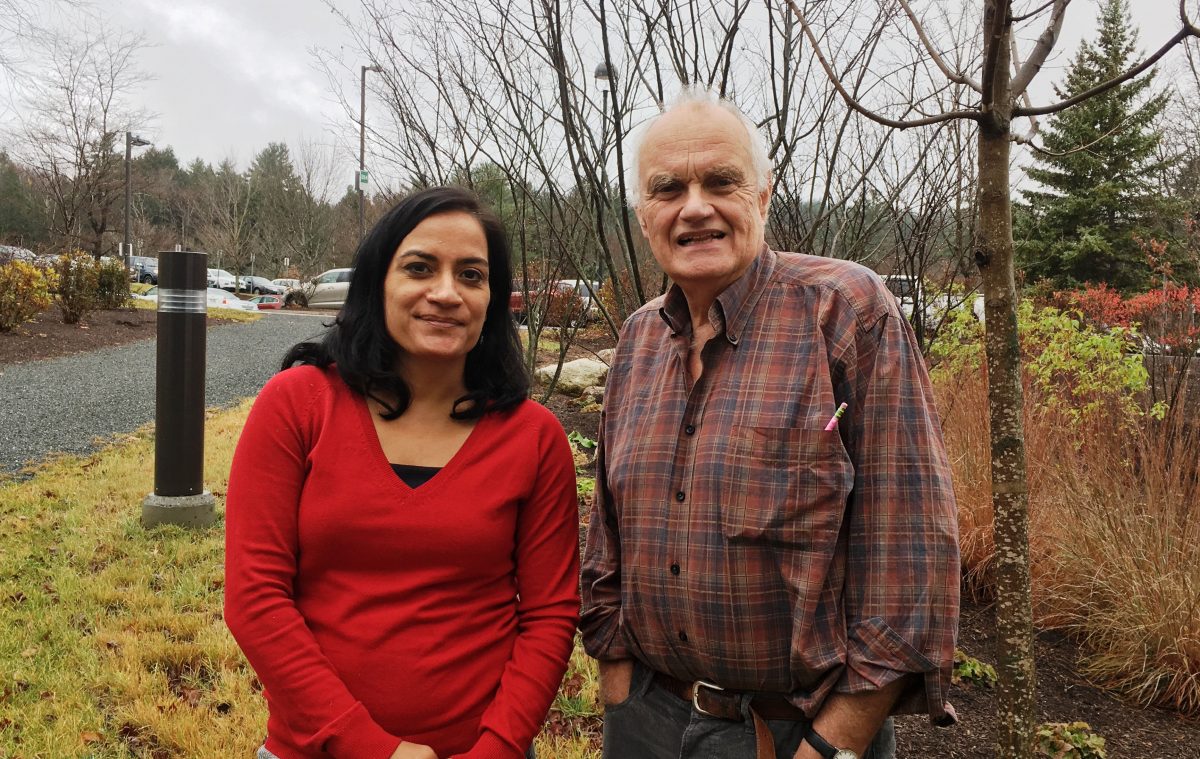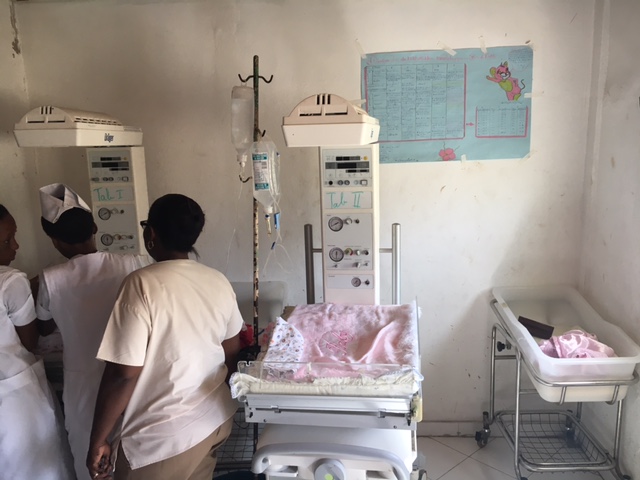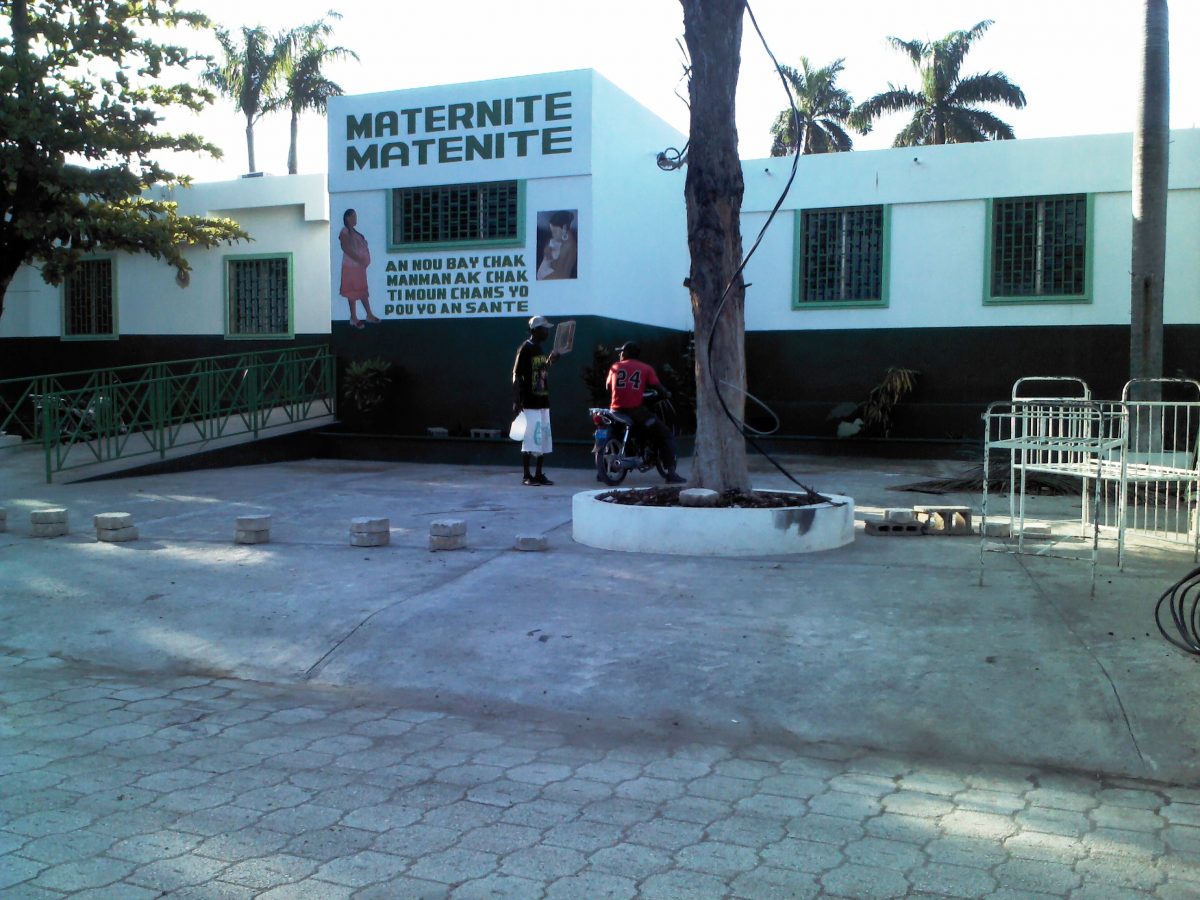Professor of Pediatrics, Geisel School of Medicine at Dartmouth
Meeting Maternal and Child Health Sustainable Development Goals (SDGs) in Haiti

Prize Amount
$68,000 USD
Location
Les Cayes, Haiti
Problem
Health care in Haiti has stagnated with only marginal improvements in maternal and neonatal mortality in the last 20 years. In spite of efforts at preventive care, both rates remain the highest in the Americas. This project addresses an important gap in health care delivery: referral and care of critically ill newborns who experience respiratory distress but are otherwise healthy.
In 2013, there were 17, 477 under-5 deaths in Haiti of which 6,713 (38%) were during the neonatal period (0-28 days). Nearly 65% of all neonatal deaths were due to causes associated with respiratory distress, including prematurity, birth asphyxia, birth trauma and sepsis.
Hôpital Immaculée Conception (HIC) in Les Cayes serves as a referral hospital for the Sud department of Haiti, with an estimated population of 775,000 mostly rural people, a quarter of whom are women of reproductive age. Between January 2013 and July 2016, there were 11,887 births at HIC of which 509 were recorded as stillbirths and nearly 60% as macerated, an event rarely seen in the developed world and largely preventable. Currently, the hospital has no capacity to resuscitate newborns or to provide ongoing respiratory support for those that need it. Health workers are not trained to identify newborns needing resuscitation and no trained neonatal health staff attend complex deliveries where neonatal distress must be assessed and critical care delivered within the first minute of life… HIC needs a trained neonatal team to identify newborns requiring resuscitation at birth. Additionally, there must be capacity to provide neonatal care to those premature infants who are viable by age and weight but may need to be monitored and require Continuous Positive Airway Pressure (CPAP) during the first weeks of life.
Project Description
Dartmouth’s project, Meeting Maternal and Child Health Sustainable Development Goals (SDGs) in Haiti, led by Drs. Peter Wright and Alka Dev, will build a model for the reduction of perinatal mortality in Haiti by introducing a low-cost, highly effective neonatology service at HIC. The project will:
1) introduce neonatal resuscitation with capacity for CPAP;
2) establish a new neonatal care service; and
3) train key health staff in neonatal care.
The Helping Babies Breathe curriculum will be taught to obstetrical practitioners at HIC with documentation of one-month survival among newborns receiving CPAP. Training efforts will be focused on resuscitating infants in the first minute of life and on introducing CPAP to support vulnerable infants in the neonatal care unit. A selection of infants born at HIC during the project period will be followed at the 7-day and 1-month mark to document survival rates after discharge.
Project Novelty
The project is novel in its approach to develop a neonatal resuscitation service in a public-sector referral hospital in a low-income country. When an at-risk pregnant woman or distressed newborn is identified in the community or health center, there must be the capacity to care for them at a referral site. Ultimately, we anticipate that this project will be complemented by community-based activities to identify women with high risk pregnancies for timely transfer to HIC to further reduce mortality among at-risk neonates.
Globally, the project will contribute to advancing the WHO/UNICEF Every Newborn Action Plan (ENAP) to guide Ministries of Health and the scientific community in their work to reduce preventable neonatal mortality and stillbirths. Specifically, resuscitation in the immediate period after birth will accelerate progress towards the Sustainable Development Goal of 12 neonatal deaths per 1000 live births by 2030.
Project Lead
Peter Wright has focused on pediatric health in Haiti for 42 years, spending months out of every year training Haitian physicians, setting up clinics and meeting with the Haitian Ministry of Health and the Haiti diaspora to identify problems and solutions for health care delivery among mothers and children. As a result, he has in-depth knowledge of Haiti’s health care system and has spent much of his career working to improve it.
Organization
Following the catastrophic 2010 earthquake in Haiti, Dartmouth launched one of the most effective medical responses to help the Haitian people, sending several teams of emergency physicians and nurses, including Dr. Peter Wright, to various sites where they delivered tons medical equipment, food, and water to aid the victims and support to other medical teams. As a result of Dartmouth’s commitment to the people of Haiti, in 2013 they convened the Porter Symposium to define, with the government of Haiti and Haitian diaspora, special needs in health, education, and economics. Since then, a Dartmouth-Haiti Partnership has addressed affordable housing, innovations in PEPFAR in Les Cayes, sanitation, provision of health care in the urban slums surrounding GHESKIO, training of Haitian professionals, and social dynamics in urban Haiti. Strong partnerships with Saint Boniface, Hopital Albert Schweitzer, FOKAL, GHESKIO, GRAHN and the Ministry of Health have been formed.


